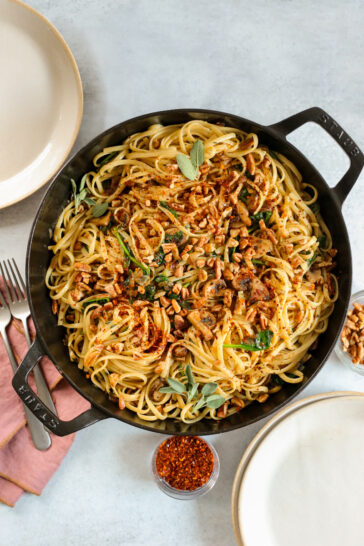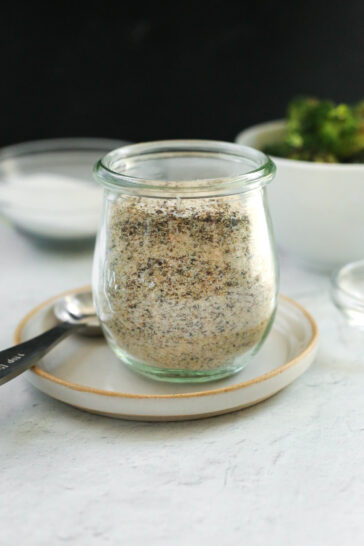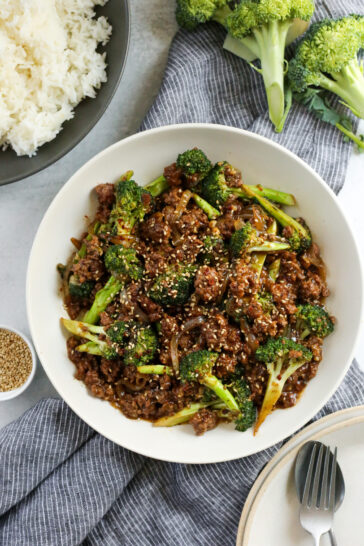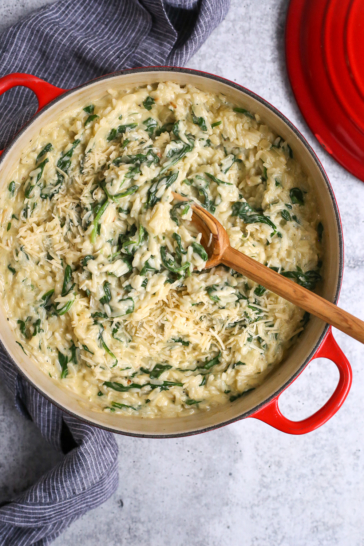The ongoing debate about zero-calorie sweeteners vs. sugar has been heated. And let me tell you, folks can have some pretty strong opinions about which one is best! Keep reading to learn everything you need to know to make a smart choice about the sweet stuff.
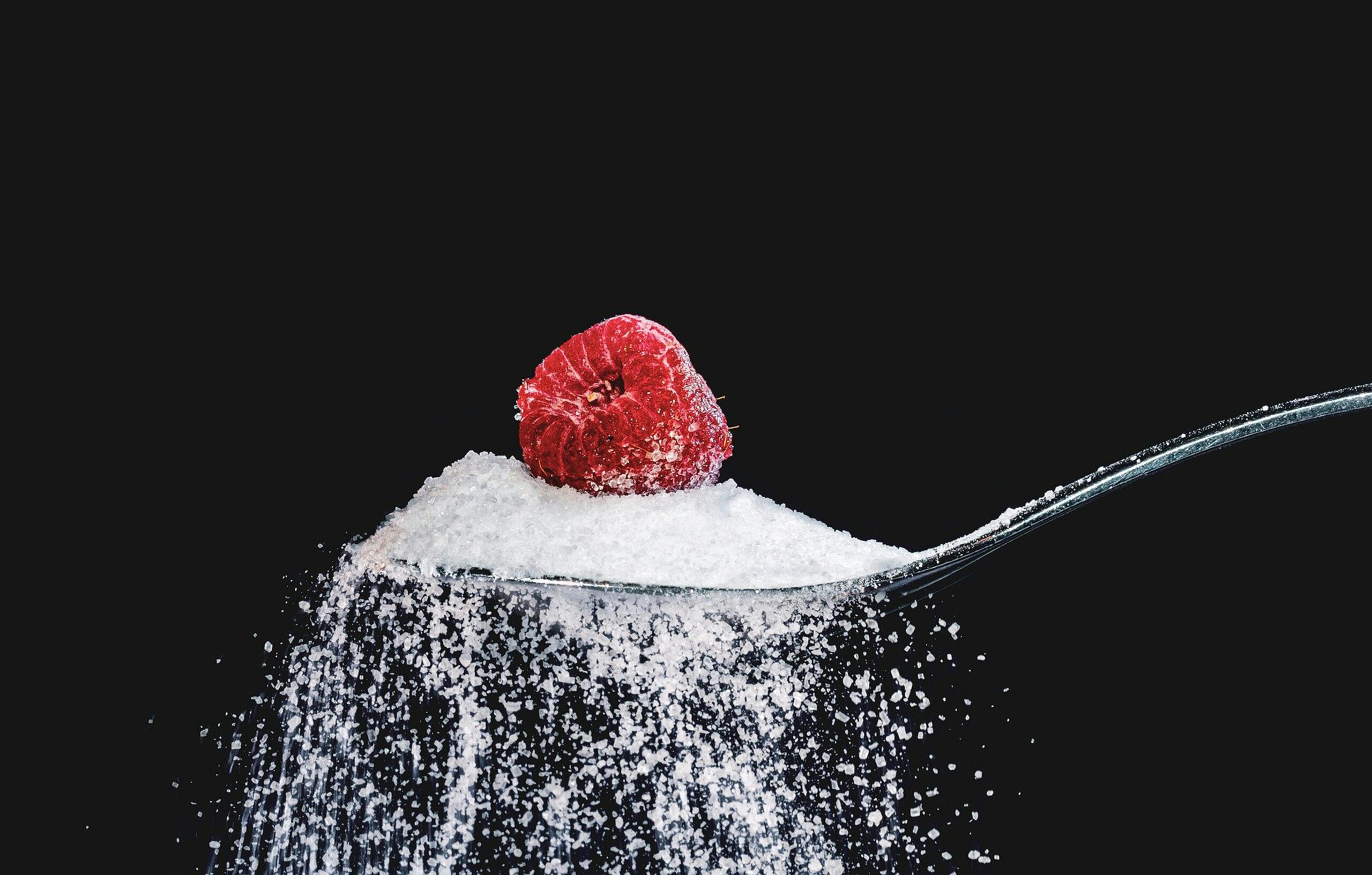
As a registered dietitian, I love when I can empower you to make the best, most informed decision for yourself, based on your unique priorities.
This article delves into what we currently know about the science and safety of zero-calorie sweeteners (AKA artificial sweeteners). I’ll offer my own expertise on whether these sugar alternatives are actually a healthier choice or bring their own set of concerns.
My hope is that after reading this article, you’ll feel confident in the sweetener choice that feels best to you.
What I’ll Be Covering In This Article

What are zero-calorie sweeteners?
Zero-calorie sweeteners can have a few different names. They include non-nutritive sweeteners, sugar substitutes, artificial sweeteners, or low- and no-calorie sweeteners (LNCS). This diverse group of sweeteners includes both synthetic and natural compounds that offer the sweetness of sugar without any (or many) calories.
These sugar alternatives are used to flavor foods and drinks. They come with the marketing that they’re healthier than sugar. But many people are concerned with long-term health effects, which we’ll get into in this post. Zero-calorie sweeteners typically contribute little to no energy (calories) to what you’re eating or drinking.
Zero-calorie sweeteners are especially popular with people looking to manage their weight or blood sugar (for example, those with diabetes or pre-diabetes) because they offer sweet tastes with minimal change to their blood sugar levels.
Common zero-calorie sweeteners
Among the wide variety of zero-calorie and low-calorie sweeteners available on the market, each has its unique features and usage recommendations. Here’s a closer look at some of the most common artificial sweeteners:
- Aspartame (Nutrasweet, Equal): A widely used artificial sweetener found in many diet sodas, low-calorie desserts, and sugar-free gum. Despite its popularity, it’s not suitable for everyone, including individuals with phenylketonuria (PKU) (1). However, it’s not linked it increased cancer risk as it’s metabolized into the amino acids, aspartic acid and phenylalanine. According to the European Food Safety Authority (EFSA), the current Acceptable Daily Intake (ADI) of 40 mg/kg body weight is appropriate for anyone without PKU.
- Sucralose (Splenda): Another popular chemical sweetener that’s about 600 times sweeter than sugar. It’s stable under heat, making it versatile for cooking and baking.
- Saccharin (Sweet’N Low, Necta Sweet): One of the oldest artificial sweeteners, saccharin is up to 700 times sweeter than sugar. It has a slightly bitter aftertaste and is often used in combination with other sweeteners to mask this.
- Stevia: Derived from the leaves of the Stevia plant, Stevia sweeteners are marketed as “natural” and are several hundred times sweeter than sugar. They have gained popularity for their natural origin and are often used in beverages and health food products.
- Erythritol: A sugar alcohol that’s almost as sweet as sugar but with nearly zero calories. Erythritol occurs naturally in some fruits and fermented foods, but it’s also commercially produced. It has a cooling effect in the mouth and is less likely to cause digestive issues compared to other sugar alcohols. It’s commonly added to combinations of other sweeteners so the final product more closely resembles the texture of sugar.
- Xylitol: Another sugar alcohol, xylitol is as sweet as sugar but with 40% fewer calories. It’s commonly found in sugar-free chewing gums, mints, and dental care products due to its tooth-friendly properties.
- Monk Fruit (Luo Han Guo): Extracts from monk fruit, a small melon native to Southeast Asia, provide sweetness 150 to 200 times that of sugar. Monk fruit sweeteners have no calories and are used in a variety of food and beverage products.
- Allulose: This new kid on the block is a low-calorie sweetener that occurs naturally in a few different fruits, including raisins and figs, in small amounts. To make large enough quantities to sell in your local grocery store, companies make this sweetener from fructose. The resulting allulose sweetener is about 70% as sweet tasting as sugar and has about one tenth as many calories (2).
Each of these sweeteners offers a sweet taste without the calorie content of sugar. Yet their health implications and suitability might vary among different individuals.
BTW: at the grocery store, there are also many different blends of zero calorie sweeteners and sugar to best mimic the taste and texture of sugar in baked goods (3).
Which foods have zero-calorie sweeteners?
If you choose not to drink diet sodas, you may still have artificial sweeteners in your daily routine and not even know it. This isn’t a good or bad thing, we’re just getting the lay of the land here, together.
One example may be taking place in your bathroom. Did you know that many common brands of toothpaste and chewing gums have zero-calorie sweeteners in them? Crest toothpaste has saccharin in its products and Orbit chewing gum is made with sorbitol (4, 5).
You may also be surprised to see zero-calorie sweeteners in other packaged foods, such as Pepperidge Farm Light Bread and Del Monte No Sugar Added Canned Mandarin Oranges. Some sugar alcohols are also used to make gummy vitamins or supplements more palatable without adding extra sugar.
Again, this isn’t good or bad. It just may be helpful to know that these zero-calorie sweeteners exist beyond cans of diet drinks.
Understanding “Regular” Sugars
In contrast to zero-calorie sweeteners, “regular” sugars, also known as nutritive sweeteners or natural sugars, provide energy in the form of carbohydrates.
What counts as regular sugar? White granulated sugar (table sugar or cane sugar), brown sugar, honey, maple syrup, and powdered sugar, among others. You might also think of them as “natural sweeteners”. We get sugar from a few different kinds of super-sweet plants, including sugarcane, sugar beets, and fruits.
Delicious foods and drinks made from sugar are culinary staples across the world. Regular sugars are integral to many traditional forms of cooking and baking. They provide not only sweetness but also texture, color, and bulk to various food products. That’s why you may see added sugar on food labels for something besides sweet foods. But is it healthy?
Having LOTS of added sugar isn’t a super nourishing choice. Having a high amount of added sugar each day poses health risks, such as an increased risk of heart disease, anxiety, and diabetes (6, 7).
However, there is some wiggle room. The Dietary Guidelines for Americans recommends keeping an eye on your total added sugars in your usual routine (8). The current guidelines recommend no more than 10% of total daily calories from added sugar. For the average person, that’s about 50 grams.
Does that sound like a lot? Well, for some people, maybe it is and for others, maybe it isn’t. That’s about 12 teaspoons of white granulated sugar, which could come from one source (like a regular soda or other sugary drinks) or various foods throughout the day.
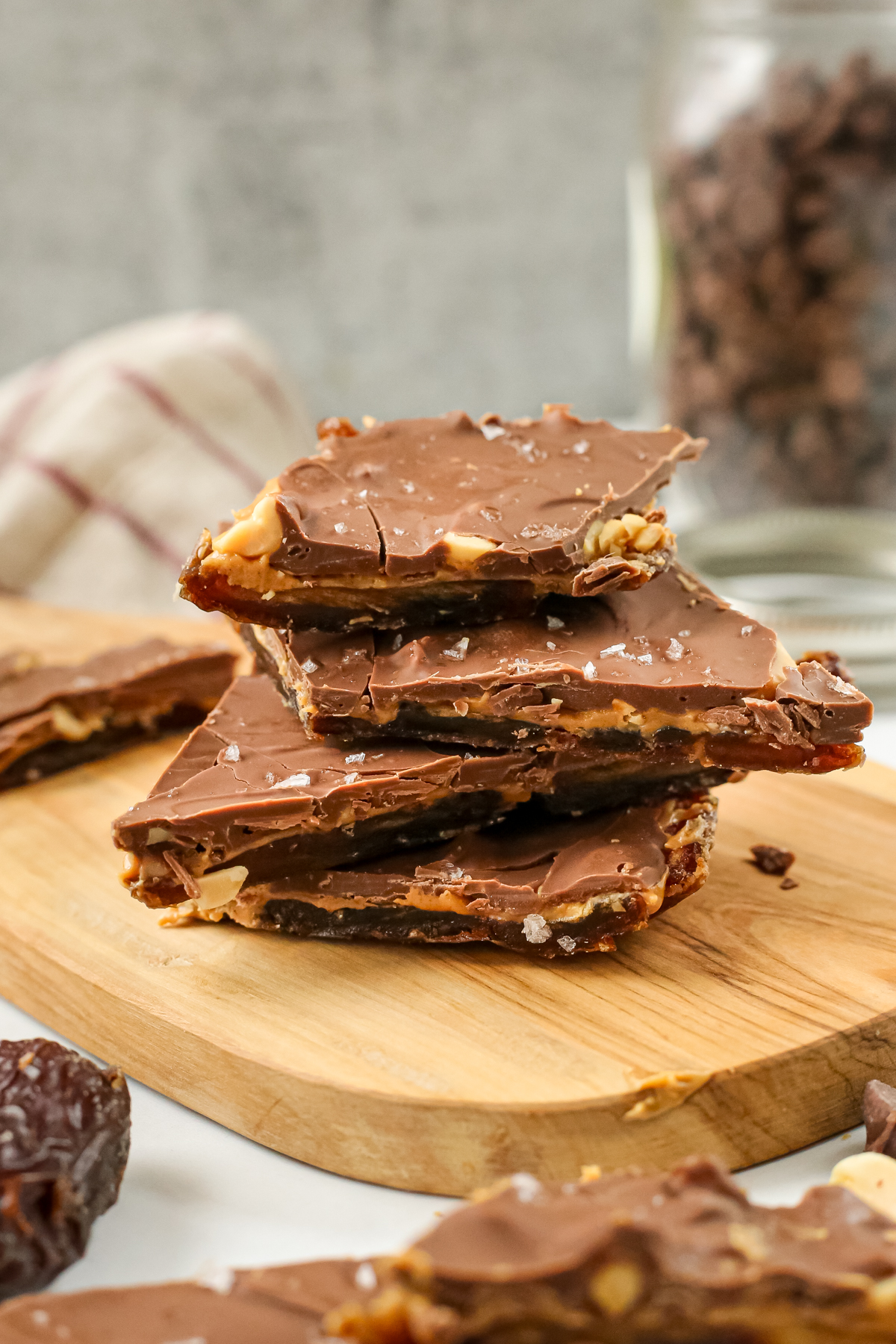
The Bottom Line: No credible resource is recommending that you have zero sugar in your diet. Likewise, no one is recommending that exclusively fill up on sweet stuff. As with all foods, moderation is a better approach so you never feel deprived.
Curious about where we get sugar from? I was too. I had the opportunity to visit a sugarcane farm in Louisiana and it was a sweet (ha!) experience. Check out my post to learn more about growing sugar, right here: Where Does Sugar Come From? Tour a Louisiana Sugar Cane Farm With Me.
Zero-calorie sweeteners: not as helpful as we thought
As an Intuitive Eating dietitian, I’d also love to take a moment to point out that for many folks, the reason that they’re choosing zero-calorie sweeteners is because they’re pursuing weight loss. The idea being, if you cut back on your sugar intake, you’ll avoid weight gain.
Unfortunately, these sweeteners aren’t supporting their health goals like we had originally hoped.
Most studies looking at zero-calorie sweeteners and weight loss show that the sweeteners aren’t actually helping folks achieve their weight loss goals (9, 10).
And for those folks hoping to achieve better blood glucose control, zero-calorie sweeteners aren’t helping there either long term (11).
So, if you’re forcing yourself to drink zero-calorie drinks that you don’t actually like, I offer you a permission slip to switch to something that you enjoy more, even if it has real sugar.
But if for you, an ice-cold, crispy Diet Coke is your non-negotiable daily moment of zen, please know that you’re safe to continue this routine.
In either case, the big picture is that it is the dose that matters more than the specific ingredient being inherently “good” or “bad.”
What’s the dose?
I am sure that you have no qualms with water, right?
But the truth is: if you chug a whole lot of water in a short amount of time, you can actually cause your heart rhythms to go wonky. Why? The big influx of water can throw off your electrolyte balance.
Sadly, a few college students have died from drinking a huge amount of water at once (12). Similarly, marathon runners have gone into cardiac arrest if they are over-hydrating without enough electrolytes (13).
However, these rare case studies don’t mean that water is “bad” or “unhealthy.”
What it DOES mean is that there is a risk in having a huge amount of water at once. Maybe you’ve heard the saying, “The dose makes the poison.” This is exactly what that means! Too much of a good thing (like water), is no longer a good thing.
Similarly, there may be some risk in having a HUGE amount of artificial sweeteners, consistently. Having said that, the recommended limits for artificial sweeteners have a large safety buffer built in.
For example, the exact number depends on how much you weigh. But you’d have to have about a 12-pack or so of diet soda each day to go above the recommended limits for aspartame (14). And even these levels are conservative estimates. Which means you would likely have to consume even more to start experiencing harmful effects. The average person is consuming much, much smaller amounts.
Neither sugar nor zero-calorie sweeteners are essential to our health and wellness per se, but it sure is nice to have sweet things sometimes. It’s normal and natural to crave sweet flavors so there’s no need to judge yourself. You’re human!
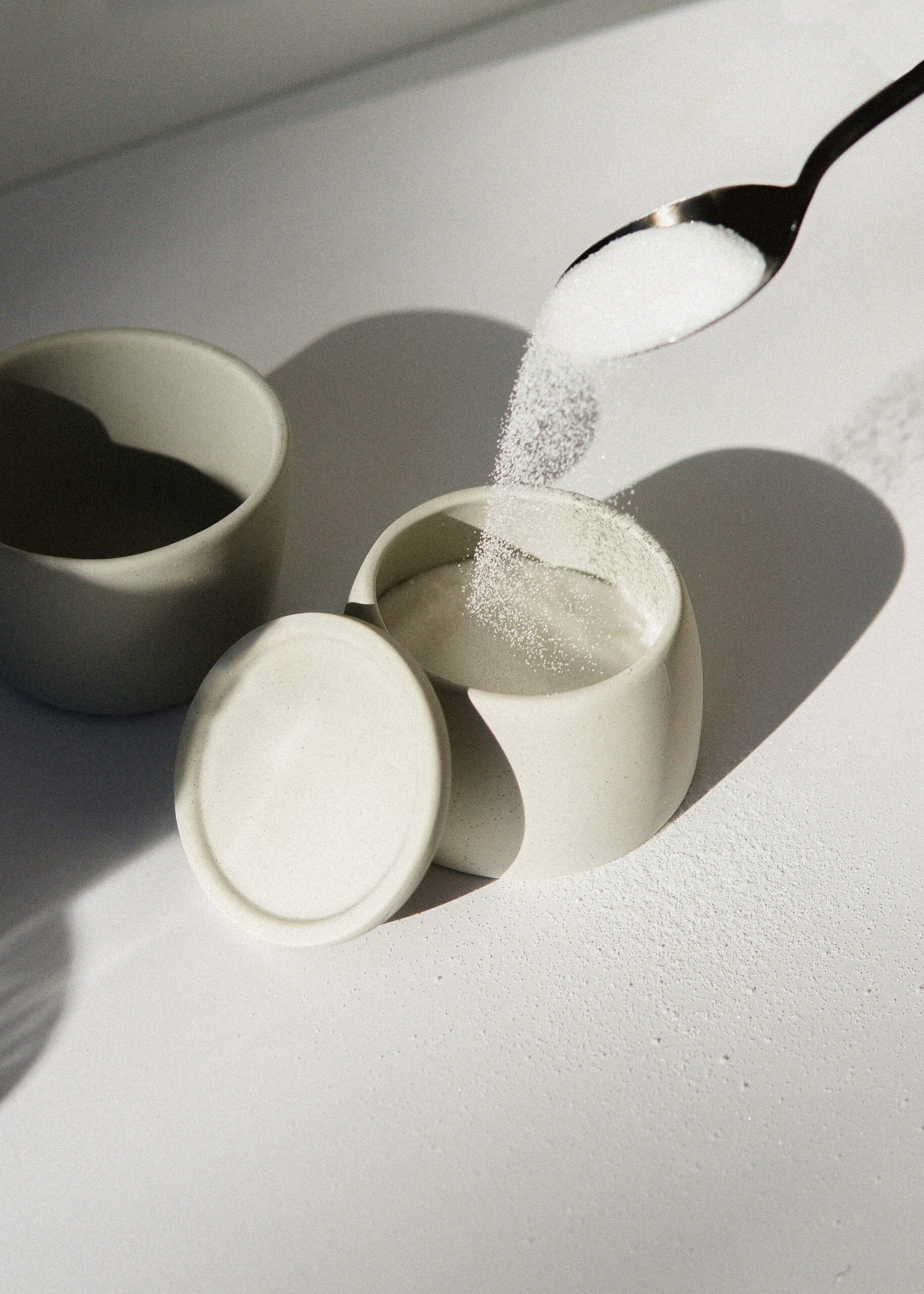
Which is best?
What I’d like for you to take away from this article is that BOTH sugar and zero-calorie sweeteners are safe. Especially in the amounts you’d typically consume. One isn’t necessarily a healthier alternative for the other, but neither is to blame for all the negative health effects under the sun.
If you can get curious with yourself: ask why you might want to make one choice or another. The reason behind your decisions matters, too.
For everyone who has been on a restrictive diet (I’m raising my hand here, too), the restriction of certain foods, drinks, or ingredients can cause stress…which is harmful in and of itself (15). Having peace with your food choices truly matters. If you’re interested in learning more about Intuitive Eating and how you can learn to have more peace and calm with your eating, check out this post: What is Intuitive Eating? Hint: It’s definitely NOT another diet.
Special Considerations
There are a few groups of people who may wish to take a little closer look at the possible risks of sugar and zero-calorie sweeteners.
- Pregnancy and breastfeeding. From what we know now, there are not any additional risks of having zero-calorie sweeteners while pregnant (16).
- GI Conditions. If you have IBS or another condition that influences your digestion, you may be more sensitive to possible side effects of some of the zero-calorie sweeteners, especially the sugar alcohols.
- PKU. If you have PKU, which is short for Phenylketonuria, aspartame is not safe for you (17).
- Diabetes. We’ve already chatted about how having zero-calorie sweeteners might not be the key to having stable blood sugars for those with diabetes or insulin resistance. If you have diabetes, I recommend you work with a registered dietitian who specializes in diabetes. The two of you can build a plan that offers you confidence and satisfaction as you plan your meals and snacks, whether that includes real sugar, zero-calorie sweeteners, or both!
What’s your why?
Ready to get personal? As an Intuitive Eating dietitian, I approach foods far beyond the simple macro and micro-nutrients that are contained within.
Food is SO much more than just the nutrients or specific ingredients.
Our preferences, circumstances, cultural norms, budgets, and health diagnoses can all influence what choices we make. And that’s 100% OK.
I encourage you to choose the foods, drinks, recipes, and ingredients that make you feel physically and mentally the best. Eat your veggies, have a variety of foods and drinks, stay hydrated, and keep your eyes on your own plate (or cup!).
That’s a wrap on sweeteners vs. sugar!
Here’s the scoop, friends: zero-calorie sweeteners are one of many options for adding sweetness to foods and drinks. A healthy diet doesn’t have to include either. But it’s certainly possible to include either or both if you want to.
It’s a personal choice whether you want to have them or not. But please know that they are safe in the amount you’d typically consume. Don’t let the over-sensationalized or fear-mongering headlines scare you. When you go beyond the headlines, there’s not much fanfare to be had (unless you’re really into the chemistry and food science like I am).
Using sweeteners, using sugar, or both is just one of many decisions you’ll make about your own wellness journey. You get to (safely) decide which is the better choice for you, based on your health history, your taste buds, and your budget.
Pinky promise: your sweet choice is the right one for you.

